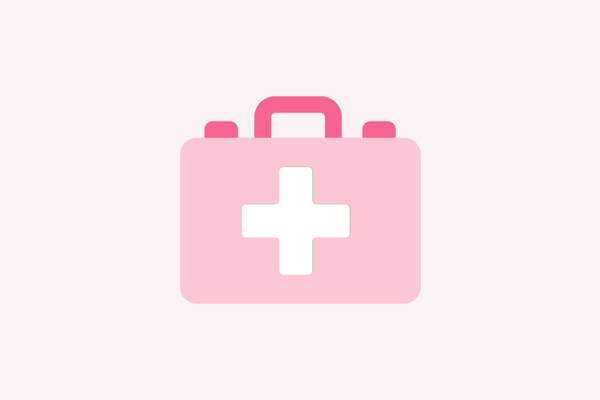It's easy to blame those yawns and feelings of fatigue on being too busy or not getting enough sleep or being overly stressed.
Most times, you'd be correct.
But sometimes, it's not just "normal" fatigue. And that's when it's important to take a deeper dive into those persistent, disabling feelings of sleepiness or complete exhaustion.
Are you always tired, falling asleep night after night on the couch and struggling to stay awake for your favorite television program? Do you find yourself canceling plans because you have no energy? Does your fatigue get in the way of your life?
Then there may be other causes that go beyond the obvious.
- Allergies Research published in the Archives of Internal Medicine found that the more severe your allergic symptoms are, the more impaired your sleep will be. Allergies send your immune system into overdrive, which can trigger chronic inflammation and fatigue. Allergies can also interfere with your breathing, cause snoring and keep you up at night. And if you take medications to treat your allergies, like decongestants or antihistamines, some of these may interfere with your sleep patterns as well.
- Anemia When you don't have enough red blood cells—whether it be through blood loss or a decrease in their production—you can develop anemia, and the cells in your body will not get adequate oxygen to function properly. Anemia is the most common blood condition in the United States. Older adults are especially vulnerable if they have a poor diet or other medical conditions; so are women of childbearing age because of blood loss from menstruation or the increased demands of blood supply that pregnancy puts on their bodies. There are more than 400 types of anemia, which can be temporary or chronic. Learn more about iron deficiency anemia.
- Your thyroid When your thyroid doesn't produce enough of its hormones, the hypothyroidism that follows can make you feel tired and weak (among other things). Left untreated, the symptoms, which develop gradually over time, can worsen. An overactive thyroid (hyperthyroidism) can also cause fatigue for some people. Thyroid issues are easily detected through a simple blood test. Find out more about things your thyroid can affect.
- Fibromyalgia This condition that causes constant pain and fatigue is more likely to affect women than men. It can disrupt sleep and has also been associated with other sleep disorders like restless leg syndrome and sleep apnea. Even though people with fibromyalgia may sleep for a long time, it's not uncommon for them to awaken tired and feeling unrefreshed, which can impair functioning and lessen their quality of life.
- Sleep disorders Sleep apnea occurs when the muscles in the back of your throat are unable to keep your airway open—thus, the loud snoring, tossing and nighttime choking and gasping that can disrupt your sleep (often without you even realizing it). Sleep apnea is associated with being overweight or obese but thin people can suffer from this condition as well. Left untreated, it can lead to hypertension, heart disease and problems with mood and memory. A CPAP machine is often an effective way to deal with the condition. Restless leg syndrome, which affects one in 10 adult Americans, causes an overwhelming and strong desire and urge to move your legs, especially at night while you're at rest, making it difficult to get a good night's sleep. Learn more about 5 Things That Sabotage Your Sleep.
- Your Diet If you're not getting enough calories—or getting calories in the wrong form—your energy levels can lag. A lack of iron can cause you to develop anemia (dark green leafy vegetables, lentils, nuts, seeds and eggs are some good iron sources). A lack of protein, which fuels your body to repair and build tissues, can also mess with your energy levels. Make sure you get enough with beans, cheese, tofu, fish and lean red meat.
- Depression Persistent feelings of sadness, hopelessness or emptiness can cause people to either sleep too much or have trouble sleeping, which can lead to exhaustion.
- Diabetes When your body can't use glucose properly, it builds up in the blood and can drain your energy levels. Fatigue is one of the earliest—and most common—warning signs of diabetes. Diabetes raises your risk for sleep apnea and restless leg syndrome, notes the Joslin Diabetes Center.
- Medication There are many prescription and over-the-counter drugs that can interfere with your sleep patterns or cause chronic fatigue. Most commonly, these include antihistamines, some antidepressants, drugs used to manage anxiety disorders and some blood pressure medications. Other culprits could be seizure or epilepsy medications and muscle relaxants.
- Dehydration Fatigue could be a sign of dehydration. If your body isn't getting enough water, it can't function properly. Your blood pressure drops, your heart rate increases and the blood flow to your brain slows. Older adults, people with diabetes or other chronic illnesses, and people who work or exercise outdoors in the heat are more susceptible to dehydration. Thirst is not always a reliable indicator or warning. You may be dehydrated before you feel thirsty.
- Chronic Fatigue Syndrome This illness is characterized by prolonged, debilitating fatigue that does not improve with rest and worsens with physical or mental activity. It can be hard to diagnose, and its cause or causes are unknown.
The best way to figure out what's causing your excessive sleepiness is to be aware of the possible underlying causes. A look at your health, your patterns and your habits can give you insight. A sleep study can also be very helpful if an underlying sleep disorder is suspected.







